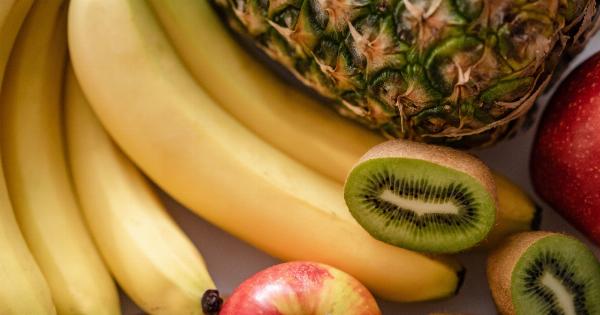Most people who have tried to lose weight can attest to the fact that it is not an easy feat. One of the biggest challenges when it comes to weight loss is keeping hunger at bay.
This is why many people turn to fad diets or pills that promise to suppress appetite or burn fat. However, as science has revealed more about how the body processes food, we now have a better understanding of what can truly help with weight loss and curbing hunger.
The Basics of Weight Loss
The basic principle of weight loss is simple – you consume fewer calories than your body burns, causing a calorie deficit. When your body is in a calorie deficit, it taps into stored fat to use as energy, leading to weight loss.
However, what many people fail to consider is that weight loss is not just about consuming fewer calories, but also making sure that the calories you are consuming are nutritious and fulfilling. Consuming empty calories or highly processed foods can leave you feeling hungry and unsatisfied, leading to overeating and weight gain.
The Role of Hormones in Hunger and Weight Loss
When it comes to hunger and weight loss, hormones play a significant role. Two of the main hormones that regulate hunger are ghrelin and leptin.
Ghrelin is a hormone that stimulates appetite, while leptin is a hormone that suppresses appetite and signals to the brain that you are full. When you are in a calorie deficit, your body produces more ghrelin and less leptin, making you feel hungrier and less full. This is why it can be difficult to stick to a calorie-restricted diet for an extended period.
The Importance of Protein
One of the most effective ways to curb hunger and promote weight loss is to consume more protein. Protein has been proven to increase satiety levels and reduce ghrelin levels, meaning you will feel less hungry and more satisfied after a meal.
Additionally, protein is crucial in maintaining muscle mass, which is essential for weight loss. When you lose weight, you typically lose both fat and muscle. Consuming enough protein can help prevent muscle loss and keep your metabolism functioning optimally.
Fiber: The Key to Feeling Full
Another essential nutrient for curbing hunger is fiber. Fiber is indigestible by the body and passes through the digestive tract, promoting feelings of fullness.
Additionally, fiber can slow down the absorption of carbohydrates, preventing spikes in blood sugar levels that can lead to cravings and overeating. Foods that are high in fiber include fruits, vegetables, whole grains, and legumes.
The Impact of Sleep and Stress
Both sleep and stress can significantly impact hunger and weight loss. Getting enough sleep is crucial in regulating appetite and reducing hunger hormones.
When you are sleep-deprived, your body produces more ghrelin and less leptin, leading to increased hunger and cravings. Additionally, chronic stress can lead to increased cortisol levels, which can increase appetite and promote fat storage in the abdominal region.
Finding ways to manage stress, such as through meditation or exercise, can help combat these effects on the body.
The Bottom Line
Weight loss and curbing hunger are not as simple as just cutting calories or taking appetite suppressant pills.
A healthy and sustainable approach to weight loss involves a balance of nutritious foods, with a focus on protein and fiber, adequate sleep, and stress management. By understanding the science behind weight loss and hunger, we can make informed choices and have a better chance of achieving our weight loss goals in a healthy and sustainable way.




























